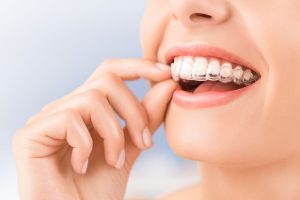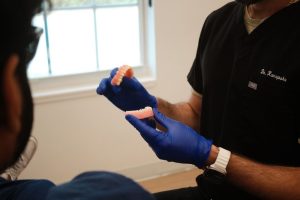Children’s dental health matters! Learn how Dental Theory supports parents with preventative care tips and personalized dental plans.
Importance of Preventative Care
Preventative care is the cornerstone of maintaining your child’s oral health. Establishing good dental habits early can prevent a multitude of dental issues and foster a positive attitude toward oral hygiene. By understanding the importance of preventative care, parents can take proactive steps to ensure their children’s teeth stay healthy and strong.
Long-term Benefits of Early Dental Habits
Starting dental care early in life has long-term benefits. Good oral hygiene practices, such as regular brushing and flossing, can prevent cavities, gum disease, and other dental problems. Children who learn to care for their teeth early on are more likely to continue these habits into adulthood, leading to a lifetime of healthy smiles.
Role of Parents in Dental Health
Parents play a crucial role in their child’s dental health. By setting a good example and teaching proper dental care techniques, parents can instill healthy habits in their children. Regularly supervising brushing and flossing, and ensuring a balanced diet, are key responsibilities for parents to help maintain their child’s oral health.
Impact on Overall Health
Oral health is closely linked to overall health. Poor dental hygiene can lead to infections, which can affect other parts of the body. By maintaining good oral health, you can help prevent other health issues such as heart disease and diabetes. Ensuring your child’s teeth and gums are healthy contributes to their overall well-being.
Building Trust with the Dentist
Regular dental visits help build trust between your child and their dentist. A positive relationship with the dentist can reduce anxiety and make future visits more pleasant. At Dental Theory Brandon, we strive to create a welcoming and comfortable environment for children, helping them feel at ease during their appointments.
Preventing Dental Anxiety
Early and regular dental visits can prevent dental anxiety. When children are familiar with the dental office and the procedures, they are less likely to feel scared or anxious. Our team at Dental Theory Brandon uses child-friendly techniques to ensure a positive and stress-free experience for your child.
Establishing a Lifelong Routine
Establishing a dental care routine early in life sets the stage for lifelong oral health. Encourage your child to brush and floss daily, and make dental visits a regular part of their routine. Consistency is key in developing habits that will benefit them throughout their lives.
Daily Brushing and Flossing
Daily brushing and flossing are essential components of maintaining your child’s dental health. By teaching proper techniques and making these activities a regular part of their routine, you can help your child develop habits that will keep their teeth healthy for a lifetime.
Proper Brushing Techniques
Teaching your child the proper way to brush their teeth is crucial. Use a soft-bristled toothbrush and fluoride toothpaste. Show them how to hold the toothbrush at a 45-degree angle to the gums and use gentle, circular motions to clean all surfaces of the teeth. Ensure they brush for at least two minutes, covering the front, back, and chewing surfaces of each tooth.
Choosing the Right Toothpaste and Toothbrush
Select a toothbrush that is appropriate for your child’s age and mouth size. A toothbrush with a small head and soft bristles is ideal for young children. Fluoride toothpaste is important for strengthening enamel and preventing cavities. Make brushing fun by letting your child pick out their toothbrush and toothpaste, which can encourage them to brush regularly.
Fun Ways to Encourage Brushing
Making brushing fun can motivate your child to maintain good oral hygiene. Use songs, timers, or apps designed to make brushing entertaining. Reward charts with stickers for each successful brushing session can also be effective. Creating a positive and enjoyable brushing experience will help your child look forward to this daily routine.
Importance of Flossing
Flossing is just as important as brushing for removing food particles and plaque between teeth where a toothbrush can’t reach. Start flossing your child’s teeth as soon as they have two teeth that touch. Use a gentle, back-and-forth motion to clean between each tooth, being careful not to snap the floss against the gums.
Teaching Kids to Floss
Teaching your child to floss can be challenging, but it’s essential for their dental health. Use floss picks or pre-threaded flossers, which can be easier for children to handle. Demonstrate the technique and help them until they are able to do it on their own. Encourage them to floss once a day to keep their gums healthy and prevent cavities.
Monitoring Oral Hygiene Habits
Regularly monitoring your child’s brushing and flossing habits ensures they are maintaining good oral hygiene. Supervise their routine, especially in the early years, to ensure they are brushing and flossing effectively. As they grow older, check periodically to make sure they continue to practice proper techniques.
Healthy Eating Habits
A nutritious diet plays a significant role in maintaining your child’s dental health. By encouraging healthy eating habits, you can help prevent cavities and other dental issues, while promoting overall well-being.
Nutritional Needs for Healthy Teeth
Children’s teeth require specific nutrients to stay strong and healthy. Calcium, phosphorus, and vitamin D are essential for developing strong teeth and bones. Ensure your child’s diet includes dairy products, leafy greens, and fortified cereals. These nutrients help build and maintain healthy tooth enamel, which is crucial for preventing decay.
Foods That Promote Dental Health
Certain foods are particularly beneficial for your child’s teeth. Crunchy fruits and vegetables like apples, carrots, and celery act as natural toothbrushes, helping to clean teeth and stimulate gums. Dairy products such as cheese, yogurt, and milk provide calcium and phosphate, which strengthen tooth enamel. Nuts and seeds also offer essential minerals that support dental health.
Limiting Sugary Snacks
Sugar is one of the leading causes of tooth decay. Limiting your child’s intake of sugary snacks and beverages can significantly reduce their risk of cavities. Encourage them to choose healthier alternatives like fresh fruit, whole grains, and yogurt. When they do consume sugary treats, ensure they brush their teeth afterward to minimize the impact on their dental health.
Healthy Snack Alternatives
Offering healthy snack alternatives can help satisfy your child’s cravings without compromising their dental health. Opt for snacks like cheese sticks, sliced fruits, vegetable sticks with hummus, and whole grain crackers. These options are not only nutritious but also less likely to contribute to tooth decay.
The Role of Hydration
Staying hydrated is crucial for maintaining good oral health. Water helps rinse away food particles and bacteria that can lead to cavities. Encourage your child to drink water throughout the day, especially after meals and snacks. Avoid sugary drinks like soda and juice, which can contribute to tooth decay. Milk is also a good option, providing essential nutrients for healthy teeth.
Impact of Diet on Oral Health
A balanced diet impacts more than just your child’s teeth. Good nutrition supports overall health, which in turn affects oral health. A healthy body is better equipped to fight infections and heal quickly, including in the mouth. Teaching your child about the connection between diet and dental health helps them understand the importance of making healthy food choices.
Limiting Sugary Drinks and Snacks
Limiting sugary drinks and snacks is a vital aspect of maintaining your child’s dental health. Excessive sugar consumption is a major cause of tooth decay, and by reducing your child’s intake, you can significantly lower their risk of developing cavities and other dental issues.
Effects of Sugar on Teeth
Sugar is a primary culprit in the development of cavities. When your child consumes sugary foods and drinks, the sugar interacts with bacteria in the mouth to form acids. These acids attack the tooth enamel, leading to decay over time. By minimizing sugar intake, you help protect your child’s teeth from these harmful effects.
Identifying Hidden Sugars
Many foods and drinks contain hidden sugars that can contribute to tooth decay. Be mindful of items such as flavored yogurts, cereals, sauces, and even some breads, which can have high sugar content. Reading labels and being aware of ingredients can help you make better choices for your child’s diet.
Best Beverage Choices
Encouraging your child to drink water and milk instead of sugary beverages can have a positive impact on their dental health. Water helps rinse away food particles and bacteria, while milk provides essential nutrients like calcium and phosphorus that strengthen teeth. Avoid giving your child soda, juice, and other sweetened drinks that can lead to cavities.
Reducing Sugar Intake
Simple, everyday choices can reduce your child’s sugar intake. Offer fruits instead of sugary snacks, and choose whole foods over processed ones. Gradually reduce the amount of sugar in their diet to help them adjust to less sweet tastes. Consistency in these choices can make a significant difference in their oral health.
Education and Awareness for Kids
Teaching your child about the effects of sugar on their teeth can empower them to make healthier choices. Use age-appropriate explanations and fun activities to illustrate how sugar causes cavities. Encouraging your child to take an active role in their dental health fosters a sense of responsibility and awareness.
Practical Tips for Parents
As a parent, you can implement several strategies to limit your child’s sugar intake. Pack healthy snacks for school, avoid keeping sugary treats at home, and set specific times for occasional sweets. Be a role model by making healthy choices yourself, and involve your child in meal planning and grocery shopping to educate them about nutritious options.
Encouraging Regular Dental Visits
Regular dental visits are crucial for maintaining your child’s oral health. These visits allow for early detection of potential issues and ensure that your child’s teeth and gums remain healthy as they grow.
Scheduling First Dental Visit
The first dental visit should occur by your child’s first birthday or within six months of their first tooth erupting. Early visits help familiarize your child with the dental office and establish a positive relationship with the dentist. This proactive approach can prevent dental issues and set the stage for a lifetime of good oral health.
Benefits of Biannual Check-Ups
Biannual check-ups are essential for monitoring your child’s dental development and catching any issues early. During these visits, the dentist will clean your child’s teeth, check for cavities, and assess their oral hygiene habits. Regular check-ups help prevent serious dental problems and ensure that your child’s teeth and gums are healthy.
Making Dental Visits Positive
Creating a positive experience at the dentist is key to encouraging regular visits. Choose a pediatric dental office like Dental Theory Brandon, which is designed to be child-friendly and welcoming. Our team uses gentle techniques and positive reinforcement to make each visit enjoyable. Praising your child and offering small rewards for good behavior can also help create positive associations with dental care.
What to Expect During Visits
During a typical dental visit, your child will thoroughly examine their teeth, gums, and mouth. The dentist will look for signs of cavities, gum disease, and other oral health issues. Professional cleanings remove plaque and tartar that regular brushing might miss. The dentist may also provide fluoride treatments to strengthen your child’s enamel and protect against decay.
Building a Relationship with the Dentist
Building a solid relationship with the dentist can help alleviate your child’s fear or anxiety about dental visits. Consistency is important, so try to see the same dentist each time. At Dental Theory Brandon, our team is committed to creating a trusting and friendly environment, making it easier for your child to feel comfortable and confident during their appointments.
Addressing Dental Anxiety
If your child experiences dental anxiety, it’s important to address it early. Talk to your child about their fears and reassure them that the dentist is there to help. Reading books or watching videos about dental visits can make the experience seem more familiar and less intimidating. Our team at Dental Theory Brandon is experienced in handling dental anxiety and uses various techniques to ensure a calm and stress-free visit for your child.
Recognizing Signs of Dental Issues
Being vigilant about your child’s dental health can help catch potential problems early, ensuring they receive timely treatment and maintain a healthy smile. As a parent, it’s important to recognize the signs of dental issues and know when to seek professional help.
Common Dental Problems in Children
Children can experience a variety of dental problems, including cavities, gum disease, and tooth decay. Other common issues include teeth grinding (bruxism), thumb-sucking, and dental injuries from accidents. Understanding these problems can help you identify when something is amiss with your child’s oral health.
Symptoms to Watch For
There are several symptoms that can indicate dental issues in children. These include:
- Tooth pain or sensitivity
- Swollen or bleeding gums
- Discoloration or spots on the teeth
- Persistent bad breath
- Difficulty chewing or biting
- Loose or shifting teeth
If your child exhibits any of these symptoms, scheduling a dental appointment as soon as possible is important.
Importance of Early Detection
Early detection of dental problems can prevent more serious issues from developing. Regular dental check-ups allow the dentist to identify and treat problems before they become severe. Early intervention can also make treatments simpler and less invasive, reducing discomfort and stress for your child.
When to Contact the Dentist
If you notice any signs of dental problems or if your child complains of tooth pain, contact the dentist promptly. It’s better to be cautious and have the dentist evaluate your child’s oral health than to wait and potentially allow a minor issue to become a major problem. At Dental Theory, we are always here to address your concerns and provide the necessary care.
Role of Dental Theory Brandon
At Dental Theory Brandon, we are dedicated to providing exceptional pediatric dental care to ensure your child’s oral health is maintained from an early age. Our comprehensive approach, specialized treatments, and supportive environment make us the ideal choice for your family’s dental needs.
Comprehensive Pediatric Dental Care
We offer a wide range of pediatric dental services to meet all your child’s dental needs. From routine check-ups and cleanings to advanced treatments, our goal is to provide the highest quality care in a comfortable and friendly environment. Our comprehensive approach ensures that your child’s dental health is managed effectively at every stage of their development.
Personalized Treatment Plans
Each child is unique, and so are their dental needs. At Dental Theory Brandon, we create personalized treatment plans tailored to your child’s specific requirements. Our detailed assessments and customized care plans ensure that your child receives the most appropriate and effective treatments for their dental health.
Board-Certified Pediatric Dentist
Our board-certified pediatric dentist, Dr. Priyanka Karapasha, brings a wealth of expertise and dedication to the care of young patients. Board certification means that Dr. Pri has undergone rigorous training and examination in pediatric dentistry, ensuring the highest standard of care. Her gentle and compassionate approach helps children feel at ease during their visits.
In-Office Sedation Services
We understand that some children may feel anxious or fearful about dental visits. To address this, we offer in-office sedation services, making us the only pediatric dental office in Brandon, Florida, with this capability. Sedation dentistry helps children relax and feel comfortable during their treatments, allowing for a stress-free and positive experience.
Educational Support for Parents
We believe in empowering parents with the knowledge and tools needed to support their child’s dental health at home. Our team provides comprehensive education on proper oral hygiene practices, dietary advice, and tips for maintaining healthy teeth and gums. We are always available to answer any questions and provide guidance to ensure your child’s oral health is well cared for.
Commitment to Children’s Dental Health
Our commitment to children’s dental health goes beyond just providing treatments. We strive to create a positive and supportive environment that encourages healthy dental habits from a young age. Our focus is on prevention, early detection, and education, helping to establish a strong foundation for your child’s lifelong oral health.
Book Your Appointment Today
Experience the Dental Theory difference for yourself. Contact our office today to schedule an appointment for your child. Our friendly team is ready to answer any questions and help you find the perfect time for your visit. We look forward to helping your child achieve a lifetime of healthy, beautiful smiles.
FAQs
Q: How often should my child visit the dentist?
A: We recommend that children visit the dentist every six months for routine check-ups and cleanings. Regular visits help monitor their oral health and catch any potential issues early.
Q: At what age should my child start seeing a dentist?
A: Your child should start seeing a dentist by their first birthday or within six months of their first tooth erupting. Early dental visits help establish good oral hygiene habits and prevent future dental problems.
Q: How can I help my child prevent cavities?
A: Encourage your child to brush twice a day with fluoride toothpaste and floss daily. Limit sugary snacks and drinks, and ensure they maintain a balanced diet. Regular dental visits for cleanings and fluoride treatments also play a crucial role in cavity prevention.








